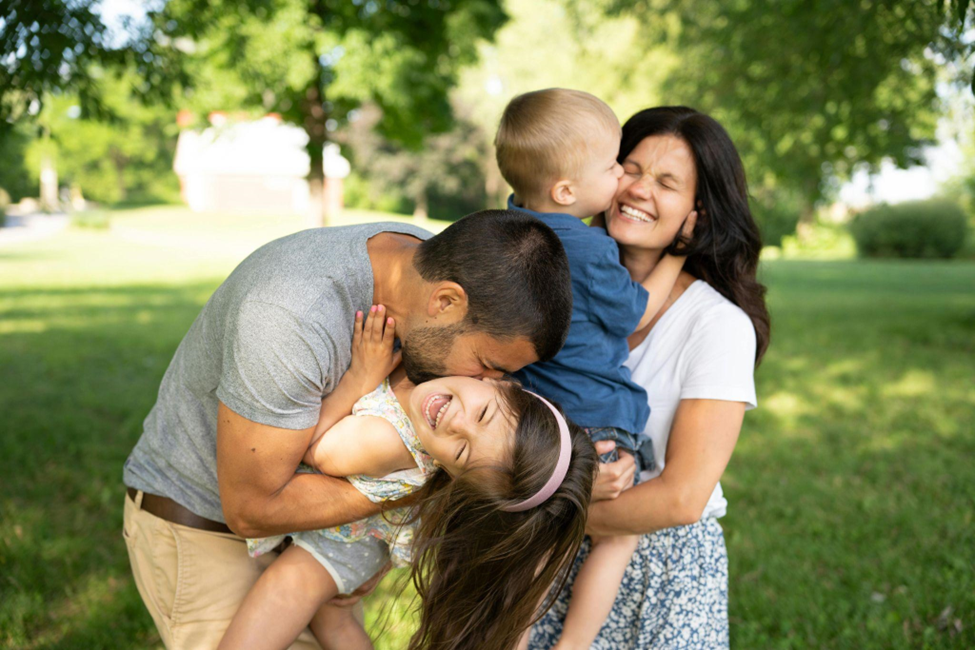from pexels.comGratitude and Appreciation to writer and contributer Jennifer ScottKeep Your Anxiety From Affecting The Kids With These Lifestyle
Keep Your Anxiety From Affecting The Kids With These Lifestyle Strategies
Parenting is a journey filled with joy and challenges, and it’s natural for your own emotions, including anxiety, to occasionally spill over into your parenting style. This spillage, however, can subtly influence your child’s mental health. It’s crucial to first understand and then mitigate the impact your anxiety might have on your children, ensuring their emotional landscape remains as healthy as possible. In this article, courtesy of We Survive Abuse, we’ll go over several things you can do to make positive changes for the emotional health of both yourself and your family.
Identifying the Echoes of Anxiety in Children
Children often mirror the emotional states of their parents, making it essential for you to recognize the signs of anxiety that may manifest in your kids. These signs could include excessive worry about routine activities, changes in sleep patterns, avoidance of certain situations, or even physical symptoms like headaches or stomach aches. If you notice such changes, consider them a prompt to examine the emotional climate of your home.
Fostering Openness at Home
Creating an environment where your children feel safe to express their feelings and concerns is fundamental. Encourage regular discussions about their day, their worries, and their dreams. This practice not only helps in catching early signs of anxiety but also strengthens your bond with them. These conversations should occur without judgment or immediate solutions, aiming instead to provide comfort and reassurance that their feelings are valid and important.
Advancing Your Career Calmly
If your current job heightens your anxiety and affects your family life, advancing your education can be a strategic way to lessen stress. Pursuing an online Family Nurse Practitioner Master’s degree can be a transformative step, promising direct involvement in patient care and increased job satisfaction. This career path, especially if your focus is on online FNP programs, allows for flexibility in balancing studies with parenting responsibilities, significantly reducing professional anxieties and indirectly enhancing your child’s emotional well-being.
Reflecting on Your Anxiety
Take time regularly to reflect on your own levels of stress and anxiety. Assess how your feelings might be influencing your behavior and, by extension, affecting your children. This self-awareness is the first step in making necessary adjustments in your parenting approach. It allows you to pause and recalibrate when you find your stress levels escalating, ensuring you are the calm and secure base your children need.
Modeling Stress Management
Demonstrate healthy ways to cope with stress and anxiety. This could include regular exercise, meditation, engaging in hobbies, or simply maintaining a routine. By managing your stress effectively, you provide a live example for your children on handling life’s pressures. Such modeling is an effective teaching tool, showing them practical ways to manage their own stress as they grow.
Encouraging Resilience in Children
Help your children develop problem-solving skills and resilience by allowing them to face age-appropriate challenges and solve problems on their own. Guide them with gentle suggestions, but allow them to experience both successes and failures. This process not only builds their confidence but also equips them with skills to handle their own anxieties and challenges.
Prioritizing Your Self-Care
Finally, never underestimate the importance of self-care in managing your anxiety. Prioritize activities that rejuvenate you physically, emotionally, and mentally. Whether it’s a nightly reading hour, a weekly yoga class, or regular social outings, maintaining your own emotional health is crucial for you to be the supportive, calm, and positive parent your children deserve.
Navigating your own anxiety while parenting is challenging, yet entirely achievable with the correct approach and resources. By recognizing and tackling your own stress, you create a more supportive emotional atmosphere for your whole family. This environment helps your children develop the skills to handle their stresses effectively and cultivate fulfilling lives.

